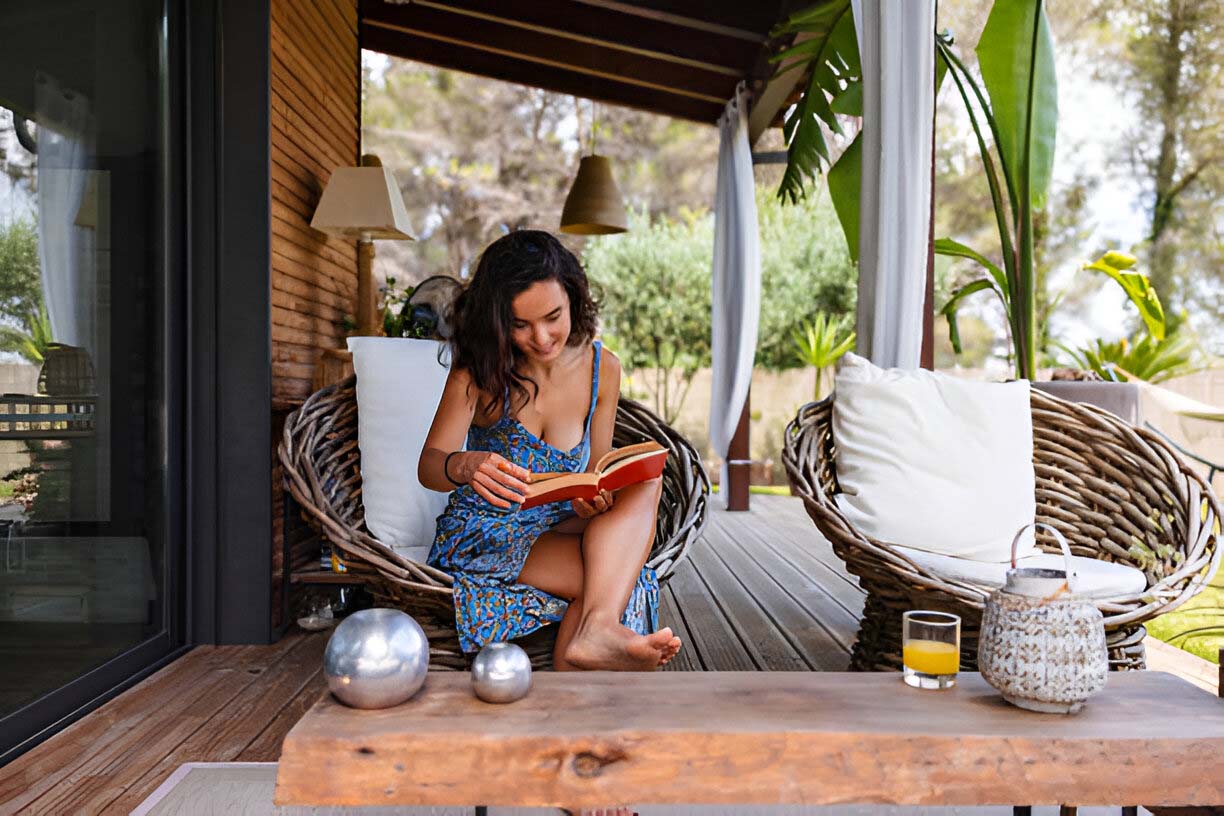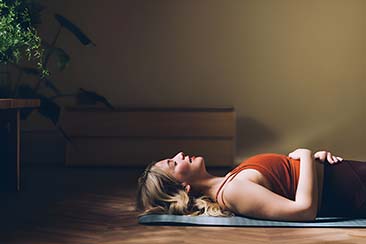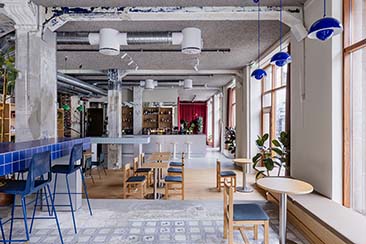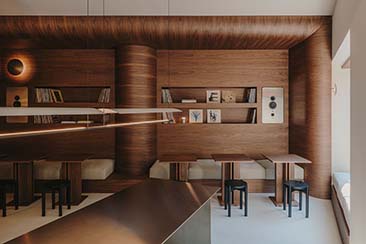Wellness Trends for 2025: A series of posts designed to uncover the most progressive concepts in wellness for the year ahead. Number Six: Micro-Retreats and Reset Getaways.
In a world where work and daily pressures blur the lines between productivity and burnout, the need for a break has never been more pronounced. Yet, with packed schedules and constant connectivity, finding the time for a traditional vacation can feel daunting. Enter “micro-retreats” and “reset getaways”—short, immersive escapes designed to offer maximum rejuvenation in minimal time. These mini-retreats are quickly gaining traction, promising to restore mind and body in just a few days.
This guide explores the growing appeal of micro-retreats, delving into the science behind their benefits, popular destinations, and the variety of experiences they offer.

What Are Micro-Retreats and Reset Getaways?
Unlike traditional vacations, which often last a week or more and require extensive planning, micro-retreats are typically designed as 1-3 day escapes focused on relaxation, recovery, and personal growth. These retreats emphasize curated wellness experiences—whether through meditation, nature immersion, or detox therapies—that help people disengage from daily stresses and “reset” in a condensed timeframe.
The structure of micro-retreats can vary widely. Some are urban day retreats that offer respite close to home, while others encourage a quick escape to scenic locations, allowing participants to reconnect with nature. From forest-bathing sessions to digital detoxes, these retreats create structured spaces where individuals can step away from routines, recalibrate, and return to their lives feeling refreshed and recharged.
The Growing Demand for Micro-Retreats
Micro-retreats represent a response to the modern dilemma of time scarcity. In today’s fast-paced world, finding the time to unplug fully and rest is challenging, with many individuals sacrificing personal well-being for work obligations. Micro-retreats provide an achievable alternative, offering a manageable escape that doesn’t disrupt professional or personal schedules.
Studies show that even brief vacations can significantly reduce stress and improve mental health. A 2018 study published in Psychosomatic Medicine found that vacation experiences, even those lasting only a few days, had a positive impact on well-being and could decrease stress levels. Similarly, shorter retreats allow people to experience the mental and physical benefits of a getaway without the logistical and financial constraints of a longer vacation.

Types of Micro-Retreats and Reset Getaways
The diversity of micro-retreats reflects the varying wellness needs of individuals. Here are some of the most popular types:
1. Digital Detox Retreats
Digital detox retreats focus on eliminating distractions from digital devices. By leaving behind phones, laptops, and even social media, participants can immerse themselves in a tech-free environment where mindfulness and introspection are prioritized. These retreats often include guided meditation, nature walks, and journaling sessions to help participants reconnect with themselves and the physical world.
2. Mindfulness and Meditation Retreats
These retreats emphasize meditation, breathwork, and mindfulness exercises to help participants center their minds and calm their thoughts. Programs vary, from introductory workshops for beginners to silent retreats that encourage deep reflection and focus. Whether it’s learning to meditate or practicing gratitude, mindfulness retreats offer tools for mental clarity and emotional resilience.
3. Nature Immersion Getaways
Nature-based micro-retreats offer a powerful way to harness the therapeutic benefits of the outdoors, and can be an ideal choice for planning a corporate retreat. Activities like forest bathing, guided hikes, and wildlife observation not only encourage participants to engage with the natural world but also foster team bonding in a serene, distraction-free environment. The proven benefits of spending time in green spaces—such as reduced cortisol levels, improved mood, lower blood pressure, and enhanced mental health—make these retreats particularly effective for alleviating workplace stress and boosting overall well-being.
4. Wellness Workshops
Focused on specific wellness themes, these retreats offer workshops and classes on topics like nutrition, fitness, or personal growth. For instance, participants might attend cooking classes that focus on nutritious, whole foods or join group fitness sessions to boost physical wellness. Wellness workshops are a great option for those looking to learn new skills or deepen their understanding of healthy habits.
5. Creative Rejuvenation Retreats
Creative micro-retreats encourage participants to reconnect with their artistic side through activities like painting, writing, or photography. By providing time and space for self-expression, these retreats can spark inspiration and serve as an outlet for stress. Many creative retreats are designed to be therapeutic, helping participants work through emotional blocks and find joy in the creative process.

The Benefits of Micro-Retreats
Though short in duration, micro-retreats offer numerous benefits that contribute to both immediate relaxation and long-term well-being:
Enhanced Mental Clarity
Stepping away from daily responsibilities, even briefly, can improve focus and cognitive clarity. Research suggests that short breaks from routine can stimulate the brain, leading to increased creativity and problem-solving skills.
Lowered Stress Levels
Micro-retreats provide structured time to relax and reset, which can lower cortisol levels and reduce stress. Whether through mindfulness, nature immersion, or simple rest, participants can disconnect from stressors and replenish their energy.
Improved Physical Health
Many micro-retreats incorporate physical activities like yoga, hiking, or movement therapy, which improve physical wellness. Additionally, a few days of nutritious eating, restful sleep, and exercise can positively impact the body’s energy levels and metabolism.
Increased Mindfulness
By immersing themselves in reflective practices, participants learn to be present in the moment, which can promote emotional resilience and reduce anxiety. Mindfulness techniques taught during micro-retreats can be integrated into daily life, creating a long-lasting impact.
Strengthened Social Connections
Group retreats foster a sense of community and support, helping participants build relationships with like-minded individuals. The social aspect of micro-retreats is valuable, especially for those who may feel isolated or disconnected in their regular lives.

Popular Destinations for Micro-Retreats
Many locations worldwide are embracing the micro-retreat trend, creating accessible options for travelers seeking rejuvenation. Here are a few popular destinations:
Big Sur, California: Known for its breathtaking coastal views and rugged landscapes, Big Sur is home to retreats like Esalen, where guests can engage in workshops on mindfulness, yoga, and self-discovery, all while soaking in natural hot springs.
Sedona, Arizona: A hub for wellness tourism, Sedona offers various micro-retreats focused on spiritual growth, meditation, and hiking. Surrounded by the red rocks, participants can take part in energy healing sessions or guided nature excursions.
The Scottish Highlands, United Kingdom: The Highlands provide a serene backdrop for nature immersion retreats, with options for hiking, forest bathing, and digital detoxes. The region’s natural beauty and isolation make it an ideal destination for mental clarity and relaxation.
Bali, Indonesia: Bali has become a global wellness destination, with a range of micro-retreats available for visitors. From meditation and mindfulness classes to creative workshops, Bali offers a transformative experience against a tropical backdrop.
How to Plan a Micro-Retreat
If you’re interested in organizing your own micro-retreat, here are a few key tips:
1. Choose a Theme or Focus
The success of a micro-retreat often lies in its focus. Decide what you want to gain from the experience, whether it’s mental clarity, relaxation, or learning a new skill. This will help you choose activities that align with your goals.
2. Pick a Location Close to Home
One of the main advantages of micro-retreats is their accessibility. Opt for a location close to home to avoid long travel times and reduce costs. Local parks, beaches, or even wellness centers can serve as excellent retreat settings.
3. Limit Digital Distractions
To maximize the restorative effects, consider leaving behind digital devices or setting strict screen limits. A digital detox can help reset the mind and improve your connection with the present moment.
4. Create a Relaxing Itinerary
Design a loose but intentional itinerary that allows time for relaxation and introspection. Plan structured activities, such as meditation or journaling, but allow for downtime so that you don’t feel rushed.
5. Set an Intention
Establish an intention for your retreat, whether it’s “rest and rejuvenate” or “connect with nature.” This mindset can guide your experience, helping you focus on what matters most.
The Future of Micro-Retreats and Reset Getaways
As wellness continues to be a priority for many, the demand for accessible, quick getaways will likely grow. Here are some anticipated trends:
Corporate Wellness Retreats: Businesses are beginning to recognize the benefits of micro-retreats for employees. By offering short wellness retreats, companies can support employee mental health, reduce burnout, and foster team-building.
Solo Wellness Escapes: Micro-retreats are increasingly popular among solo travelers looking for personal growth. Self-guided retreats allow individuals to focus solely on their needs without distractions.
Customized Retreat Experiences: With AI and personalization on the rise, future micro-retreats may offer customized experiences tailored to individual wellness needs and preferences. Personalized itineraries and AI-driven health insights could provide a more impactful experience.
Affordable Wellness Getaways: To meet demand, wellness brands are likely to create more budget-friendly options, making micro-retreats accessible to a wider audience. Affordable options might include local day retreats, urban wellness pop-ups, or even virtual retreats for those unable to travel.
Embracing the Power of Short Getaways
Micro-retreats and reset getaways offer a realistic solution to the demands of modern life. In just a few days, these escapes can provide profound mental clarity, physical rejuvenation, and emotional resilience—benefits often associated with much longer vacations. By making wellness more accessible and adaptable, micro-retreats encourage individuals to prioritize self-care and carve out time for rest, even within the constraints of busy schedules.
As the popularity of these short getaways continues to rise, they reflect a growing cultural awareness of the importance of mental and physical well-being. Whether seeking solitude in nature, pursuing mindfulness, or simply escaping digital overload, micro-retreats offer an empowering approach to wellness that’s achievable for all. With each experience, participants return to daily life not only refreshed but with a renewed sense of purpose and connection, embodying the belief that even the smallest retreats can lead to lasting transformation.








